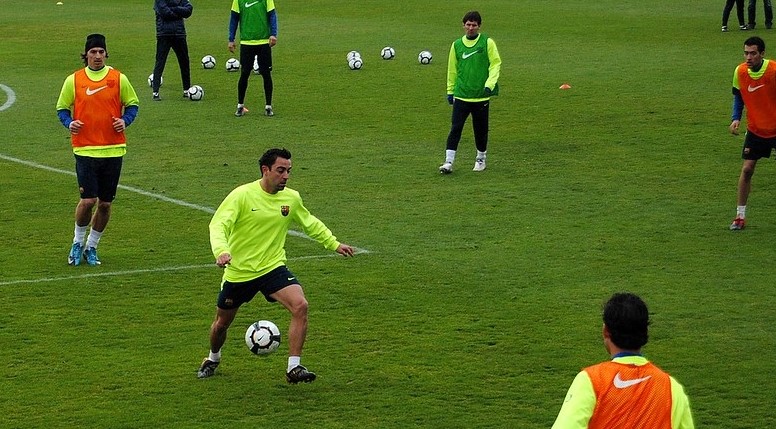Franck Ribéry looked peeved. The clock showed 75 minutes at Bayern Munich’s Allianz Stadium in the Der Klassiker against Borussia Dortmund. Ribéry had opened his team’s scoring, lashing home, on first touch, a cross from the right by Philip Lahm in the 4th minute. He had also made an assist.
Now the fourth official was holding up the electronic board to indicate that the Frenchman’s time was up: Number 11 would come on in place of Number 7.
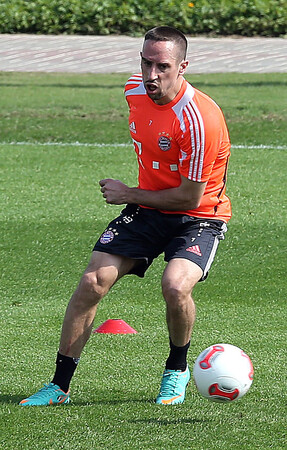
Ribéry walked briskly towards the touchline, embraced Brazilian winger Douglas Costa, who was replacing him, before coming off the pitch and turning to Ancelotti. Ribéry seemed to be demanding an explanation for his substitution – ‘What more could I have done, coach?’ – before Ancelotti took over. The Italian placed his hands around Ribéry’s face and faced a big fat kiss on the Frenchman’s cheek. Ribéry was instantly disarmed and walked away smiling.
“The kiss was nice,” the winger said after the match. “It was just natural, something positive. It was a good kiss with a lot of emotion.”
‘PLAYERS ARE PEOPLE PLAYING FOOTBALL’
“Players are people playing football,” Real Madrid coach Carlo Ancelotti told SiriusXM FC’s The Football Show earlier this month. “When you ask most of them who they are, they’ll say that they’re a player. But no, they’re men who play football. And sometimes I tell them that I put the player on the bench, not the man.
“I think that the methodology of training in football has changed a lot in the last 20 years,” he said. “So I’ve had to be ready to change my style and my idea of football, because the rules have changed. It’s a completely different sport. But what hasn’t changed is my relationship with the players. That’s the same.”
After Real Madrid won the La Liga title this year, Ancelotti joined his players in an open-top bus parade through Madrid’s streets as part of the celebration. In the midst of the merrymaking, the Italian posed for a photo with Madrid players – in which he seemed to be smoking a cigar. After the photo went viral on social media, Ancelotti said, “No, I don’t smoke cigars! It was only a photo with my friends. Yes, these players are my friends.”
ANCELOTTI’S TEACHER FROM SWEDEN
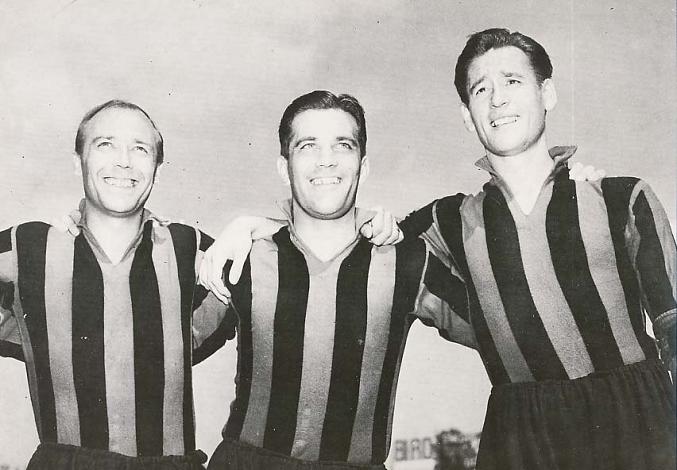
The seeds of Ancelotti’s famed man-management lie in his playing career. A crucial member of Arrigo Sacchi’s mythical AC Milan side of the late 1980s, one would think that the greatest influence on Ancelotti’s management style would be Sacchi. However, Ancelotti has said he owed a greater debt to another man who managed him as a player: Nils Liedholm.
Liedholm, a Swede, was an attacking midfielder in his playing days known for the precision of his passing. As a manager, his greatest successes came with Milan and Roma, each of whom he managed multiple times.
It was at Roma that Ancelotti met Liedholm.
“He was quiet but strong,” writes Ancelotti in his book, ‘Quiet Leadership: Winning Hearts, Minds and Matches’.
The Italian recounted how Liedholm was always open to new ideas and willing to adapt himself.
‘TAKING THE BEST FROM EACH’
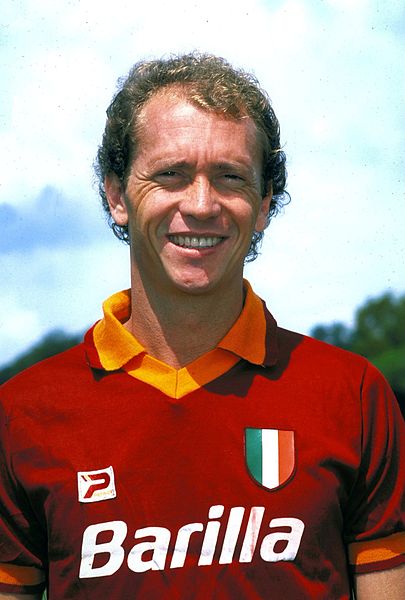
“When the Brazilian player Falcão arrived, Liedholm gave him his blessing and the power to lead,” Ancelotti writes.
“Falcão was a player with great professional quality. You know immediately when you see a leader – it’s the personality, the character. It’s not the technical skills. Falcão was one of the first foreign players I had come across and it was like he was from another planet. He was not used to our style of training, so he had to adjust. In Brazil they trained with the ball a lot, while in Italy, at that time, not so much.
“Liedholm slowly began to alter our training sessions, not only to help Falcão, but also because he was learning from the player. We began to have more sessions with the ball and fewer without it.
“Liedholm changed our training a little and Falcão a little, so we could meet closer to the middle. When a squad contains players from several different cultures, the top managers take the best from each.”
A RARE BLEMISH ON ANCELOTTI’S RECORD
Even Ancelotti, however, does not have a spotless record when it comes to man-management. His time at Bayern Munich came to an abrupt end in September 2017 when 5 senior Bayern players – said to be Arjen Robben, Jerome Boateng, Thomas Muller, Mats Hummels and Franck Ribéry (despite the kiss) – turned against Ancelotti.
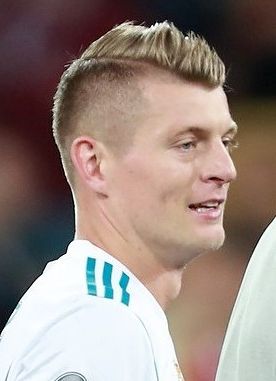
It’s hard to say if Ancelotti learned from his experience at Bayern but during Real Madrid’s incredible comeback victory over Manchester City in the Champions League semi-final this season, the Italian coach sought out his veteran players Toni Kroos and Marcelo (who were on the sidelines) for advice. “Ancelotti asked for the opinion of the experienced players on who he should sub on at extra-time,” said Kroos. “This situation describes him perfectly as a coach and is why he works so well with the team.”
Maybe Ancelotti had indeed learnt from his Bayern experience. Or maybe he was channelling his inner Liedholm.
While Ancelotti’s persona is avuncular and warm, his crosstown rival Diego Simeone is known for his fast-burning intensity and obsession with winning.
VICTORY. AT ALL COSTS.
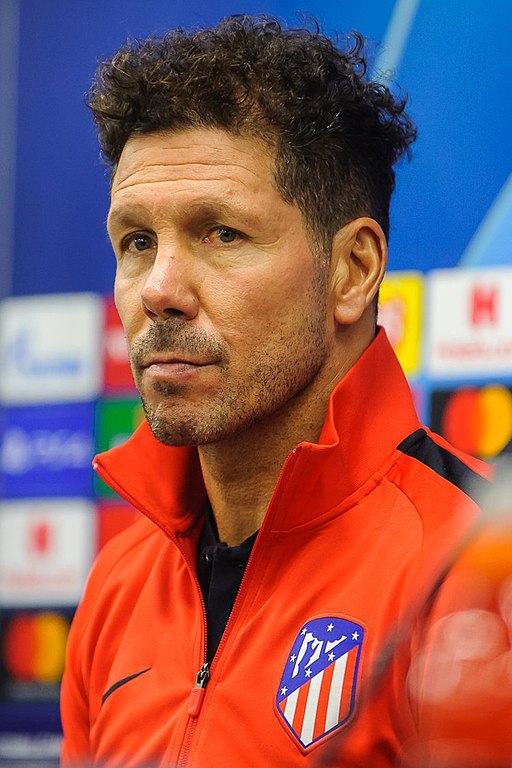
“There have been times when I’ve been in bed, asleep, and he has called me,” said England right-back Kieran Trippier while talking to BBC Radio 5.
“It is crazy, something I have never experienced. He is talking about things I could have done better and I’m trying to sleep,” said Trippier, who spent two-and-a-half years at Atletico Madrid under Simeone.
“I’ve had random texts, calls from him talking about the game and that is where he is obsessed. He is an unbelievable manager.”
“The training was relentless, it was crazy,” recalled Trippier. “He is one of those managers where you need to run through a brick wall for him. If you don’t work hard he will just pull you out. He doesn’t care how good or how big a name you are – you need to run.”
Atletico’s football is defensive, cagey, replete with snide fouls to wind up opponents and attempts to waste time whenever they are in the lead and want to close out a match. But they are capable of playing spectacular football when backed into a corner, scoring goals of stunning adroitness.
Atletico’s style of play under Simeone can be hard to watch. For non-Atletico fans, matches involving the Colchoneros can prove to be a trial of endurance, not 90 minutes of freewheeling excitement.
The football is defensive, cagey, replete with snide fouls to wind up opponents and attempts to waste time whenever Atletico are in the lead and want to close out a match. But they are capable of playing spectacular football when backed into a corner, scoring goals of stunning adroitness.
Atletico defender Stefan Savić inadvertently provided a glimpse into his team’s mentality after his side had lost 2-4 to Barcelona in a La Liga match in February at the Camp Nou.
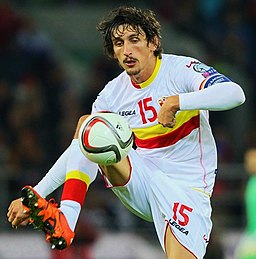
“We wait until we are losing before we start to play,” Savić said. “I don’t know if it’s something in our heads, but we have to change it if we want to play in the Champions League.”
Simeone, however, was more straightforward.
“You have to value the forcefulness of your rival, and try to improve your intensity and aggressiveness”, Spanish newspaper Marca quoted him as saying.
“We had several clear chances. But, football matches are won by whoever is more forceful. I measure games by chances. They had four and scored three in the first half and we scored one from four.”
AN ARCH-REALIST
This directness is what makes Simeone such a compelling character of the modern game. Once a match is over, regardless of result, he almost always gives credit where it is due. The approach has paid dividends, with the former River Plate coach now in his 11th season on the Atletico bench after winning 8 trophies with the Colchoneros, including 2 L Liga titles and 2 Europa League victories. He has also led them to 2 runner-up finishes in the Champions League, both lost to city rivals Real Madrid.
Simeone does not believe in political correctness. Last October, he was accused of snubbing Liverpool manager Jurgen Klopp when the Atletico coach did not shake his rival’s hand after losing 2-3 in Atletico’s Champions League tie. Simeone instead sprinted down the players’ tunnel at the Wanda Metropolitano stadium at the end of the match.
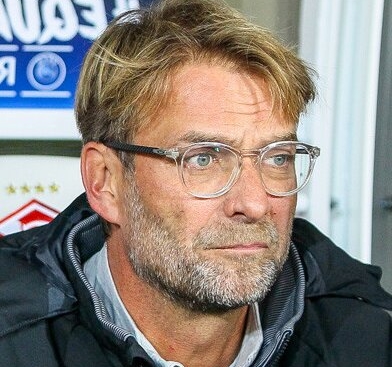
“I don’t like the greeting after the match because they are the emotions of two sides in different emotional minds,” he said later. “I know in the UK it is a custom but I don’t share it and I don’t like the falseness it may include.”
The Argentine also has an approach of striking clarity when it comes to results: any result is acceptable as long as his players have given their absolute maximum on the field.
“You feel good when you give everything and you show the best version of yourself,” Simeone said after being knocked out of the Champions League this season by Manchester City in the quarterfinal in April. “We weren’t clinical. We were eliminated but we’re calm because we gave everything.”
The second leg of Atletico’s last-eight match against City in particular was ill-tempered, with a late red card for Atletico’s Brazilian defender Felipe and a post-match melee involving City and Atletico players.
Asked about his team’s performance on the night and behaviour, Simeone said, “We’ve always been proud. We don’t need one episode, or one night, to increase it further. We’re proud. We know where we’ve come from and the work we’ve done over these long years.”
It was the most important play of the match, it could have been a goal for us. I told (Federico Valverde), ‘Don’t worry, anybody would have done the same in your place.’
Diego Simeone
The Argentine was even appreciative of Real Madrid’s Federico Valverde when the Uruguayan was sent off for tackling Atletico striker Alvaro Morata deep into extra-time in the Spanish Super Cup final in January 2020. The game had been goalless when Morata was put through on goal by a teammate and Atletico would probably have won the final if Valverde had not brought him down. But he did, the game finished goalless after extra-time and Real Madrid went on to win on penalties.
Simeone, who gave a remorseful Valverde a pat on his head as he trudged off the pitch after being red-carded, later said, “It was the most important play of the match, it could have been a goal for us. I told (Valverde), ‘Don’t worry, anybody would have done the same in your place.’ He did what he had to do, let’s see how many matches he’ll have to miss.”
If Diego Simeone can be called the arch-realist, the coach of the other big club in Spain, Barcelona, once described himself as a “romantic”.
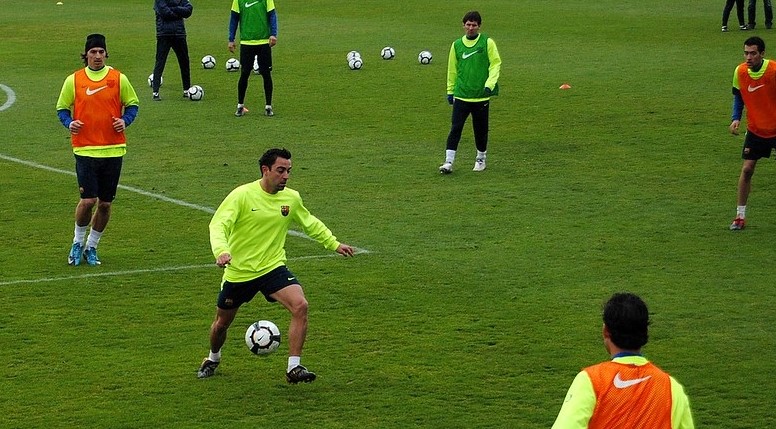
Speaking to The Guardian in 2011, Xavi Hernández, who was then still playing for Barcelona, said, “ I’m a romantic. I like the fact that talent, technical ability, is valued above physical condition now. I’m glad that’s the priority; if it wasn’t, there wouldn’t be the same spectacle.”
Ten years later, in November 2021, Xavi got the opportunity to implement his ideals at Barcelona as its coach. Taking over from Ronald Koeman, Xavi inherited a club that was underperforming on the pitch and battling crippling financial issues off it. The January transfer window presented a much-needed respite to move on some overpaid players who had not delivered on the pitch and to bring in fresh blood.
The outgoing transfers were crucial because they would also help Barcelona slash their wage-bill, which on paper accounted for 95% of Barca’s income even after Lionel Messi’s exit last summer.
A €145 million problem
By the end of January, Camp Nou wore a fraught atmosphere.
Philippe Coutinho, Yusuf Demir, Alex Collado and Inaki Pena had all left the club by January 31, either sold or sent out on loan. One man remained.
Ousmane Dembélé.
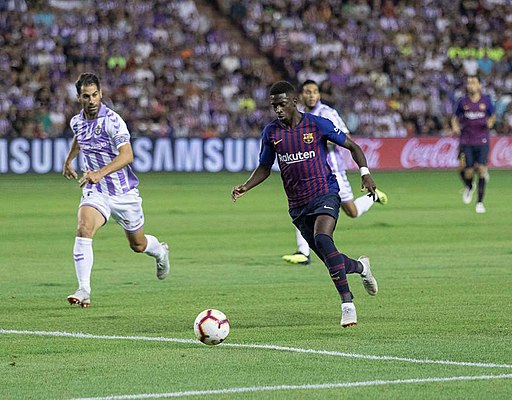
Dembélé, whose Barcelona contract will expire this summer unless he renews it, had been offered a new one by the Catalan giants, which he had refused to sign. The Frenchman, already reportedly on a €250,000 Euros-a-week contract, allegedly wanted a contract worth €43 million per year + €7m in bonuses.
What made the issue more complicated was Dembélé’s underwhelming numbers and injury record with Barcelona since he joined them in 2017. As of January 20, 2022, according to OptaJean, since Dembélé’s Barca debut on September 9, 2017, the Frenchman played only 129 out of Barcelona’s 248 matches in all competitions – just 52% of the club’s matches in that period.
Dembélé had scored 31 goals and made 23 assists in those 129 matches. After splashing out a reported €145 million to sign the winger from Borussia Dortmund in 2017, Barca had reason to feel aggrieved they had not got their money’s worth.
Barcelona refused to improve their contract offer to Dembélé and finally gave the Frenchman and his agent a deadline of January 31 to find a new club.
“If he does not accept one of these two options (renew his contract or leave the club before January 31), he will not play for Barcelona again,” said Xavi.
Come February, however, Dembélé remained, as did his reported €250,000 Euros-a-week contract on Barca’s books.
With the amount of bad-blood that existed between Barcelona and Dembélé, many expected the Frenchman to be frozen out of the squad till the end of the season. However, Xavi saw things differently.
Xavi’s man-management seems to have worked wonders with Dembélé. Ever since his return to the first team on February 13, the winger has been a revelation: 20 matches, 1 goal, 11 assists (including 2 in a thumping 4-0 El Clasico win over Real Madrid), and 4 Man of the Match awards.
“We did not find a solution with Ousmane, so the circumstances have now changed,” the Barca coach said on February 5.
“We have spoken with the president (Joan Laporta) and made the decision (to reintegrate Dembélé). He has a contract, he is part of the squad and we are not going to shoot ourselves in the foot by not using him.”
Xavi even called on supporters to back Dembélé, who had last featured in the Spanish Supercopa defeat to Real Madrid on January 12, if he featured against Atletico Madrid at the Camp Nou that weekend.
THE TURNAROUND
Xavi’s man-management seems to have worked wonders with Dembélé. Ever since his return to the first team on February 13, the winger has been a revelation: 20 matches, 1 goal, 11 assists (including 2 in a thumping 4-0 El Clasico win over Real Madrid), and 4 Man of the Match awards.
“I hope he can stay with us,” Xavi said as late as May 21.
“I have already said it and I have no problem repeating it again. He can be the best in the world in his position. The club is working for the present and the future. Ousmane is an important footballer and I hope he decides to stay. I’d sign his new contract immediately.
“I can only speak since I took charge and he is being exemplary in how he trains, his attitude, commitment and his involvement. I don’t know how he was before but I see him motivated, happy and with a very winning character. It’s not a surprise he’d come to training on his day off. He’s a great professional,” Xavi said.
WHEN XAVI WAS DROPPED
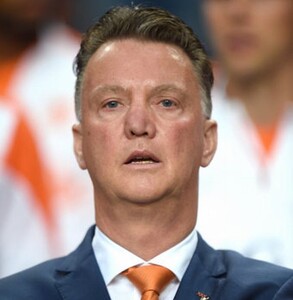
One lesson the Barca coach seems to have learned is to move with the times.
Speaking to Spanish newspaper Marca, Xavi once recalled his time as a player under the Dutch master Louis Van Gaal.
“Under him I went from playing at Old Trafford to going to play at (third division) Alcoyano when he dropped me back down to Barca B. That is something that has been lost. Now if you are in the first team it’s taken for granted that you will not go back down (to the reserves),” Xavi said.
“That’s wrong. A kid of 18 years old has to, above all, play. That way when you get back in the first team you are more hungry than ever to take your chance.”
AN URUGUAYAN SUCCESS STORY
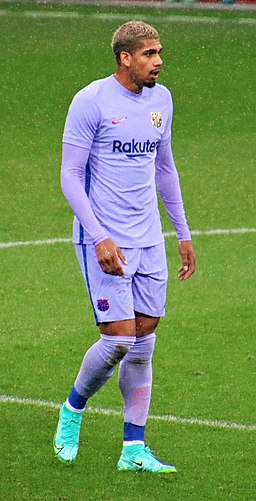
Another Barcelona player who has come on leaps and bounds since Xavi took over is Ronald Araújo. The 23-year-old centre-back, who was already highly rated for his potential, has successfully adapted his natural style to be more in line with how Barcelona play.
Xavi recently called the Uruguayan as the player “who has improved the most” since he took over in November.
“Above all, with the ball, because he is taking risks,” said Xavi.
“He is driving (forward) with the ball. He’s changed how he plays, which is what we demand, and is gaining weight within the team. Without the ball, he’s one of the best in the world, with the ball he had to improve. It’s fundamental for him and the team.”
“After arriving it took me a while to understand how to play quickly,” Araujo himself said recently while looking back on his transformation from squad player to first-teamer at Barcelona.
“I’d receive the ball at a very high speed, (but) when I tried to control it, I’d fail and go home feeling frustrated,” he told Barcelona’s official YouTube channel.
A SHARED HISTORY
The scene is Zayed Sports City, Abu Dhabi, December 19, 2009. Argentine club Estudiantes are winning the FIFA Club World Cup final 1-0, courtesy of a Mauro Boselli strike in the first-half. Barcelona coach Pep Guardiola, in his second season as a professional coach, is watching on from the sidelines.
The clock shows 89 minutes when Barcelona’s number 6, Xavi, tries lobbing the ball to Gerard Pique, who’s to his right and near the Estudiantes penalty box. The ball is intercepted by an Estudiantes player, balloons up in the air, and Pique wins the resultant header. He manages to guide the ball into the path of Barcelona forward Pedro, who heads home the ball after being left unmarked. Barca had equalised.
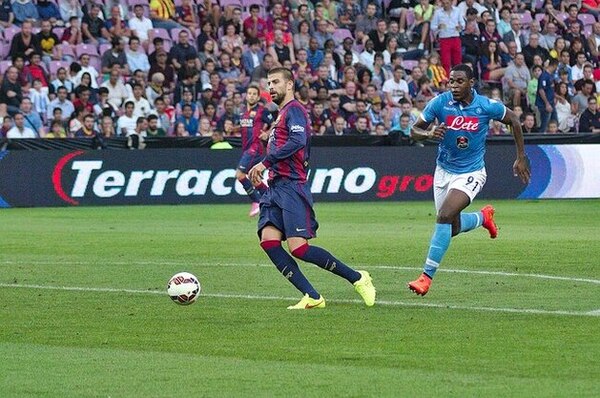
The Spanish club would go on to add a winner in extra-time to wrap up a historic sextuple of La Liga, Copa del Rey, UEFA Champions League, Spanish Super Cup, UEFA Super Cup and the Club World Cup. “I have a fond memory of this, because normally when something like this happens, and you score in the last seconds, it is a strong step towards facing extra-time the right way, as it eventually happened,” says Gerard Pique when looking back at Barcelona’s legendary sextuple. In the celebrations that followed the Estudiantes win, Pique and Xavi are side by side, freshly minted members of sporting immortality.
“There was enormous talent in the team,” says Pique in the video linked above. “We were a unique generation of players that came together with a coach who had a clear vision and was able to make us understand how to play and what our style would be. A winning team started forming from there, and we were so eager to win.”
One of the first things Xavi did after taking over as Barcelona coach was to impose 10 strict rules that players and staff would have to follow. They included:
- Players must be 90 minutes early to training.
- Staff must be 2 hours early to practice.
- Players will be fined for breaking rules.
- Fines will be doubled for repeat offences.
- Travel and off-field habits will be monitored.
Piqué was one of the Barca players directly affected by the new rules, the former Spain defender cancelling his appearance on a Spanish TV show to comply with the new norms.
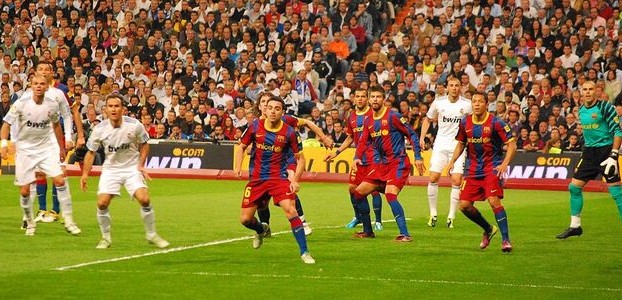
“When there are rules you don’t have to be a tough coach,” the former Manchester United defender said about Xavi’s regulations.
“As a player, when I was in a locker room where there were rules we did well. When there were no rules we did badly. It’s not discipline, it’s order.”
With one of the most respected voices in the Barcelona dressing room on his side, Xavi has started well.

